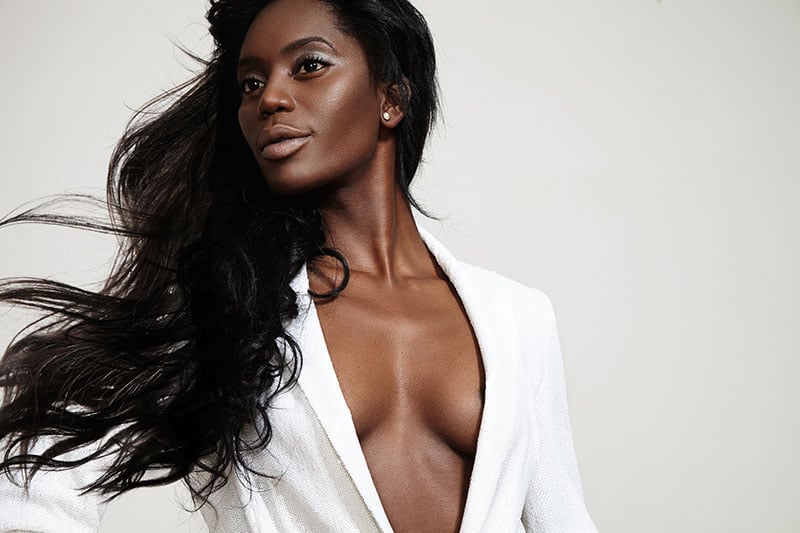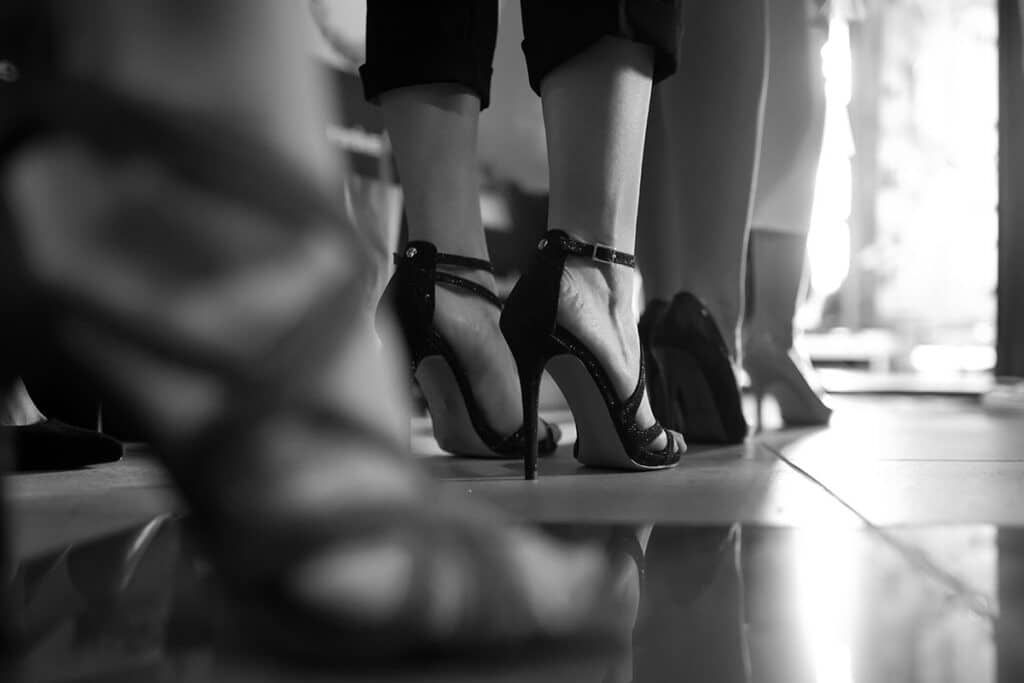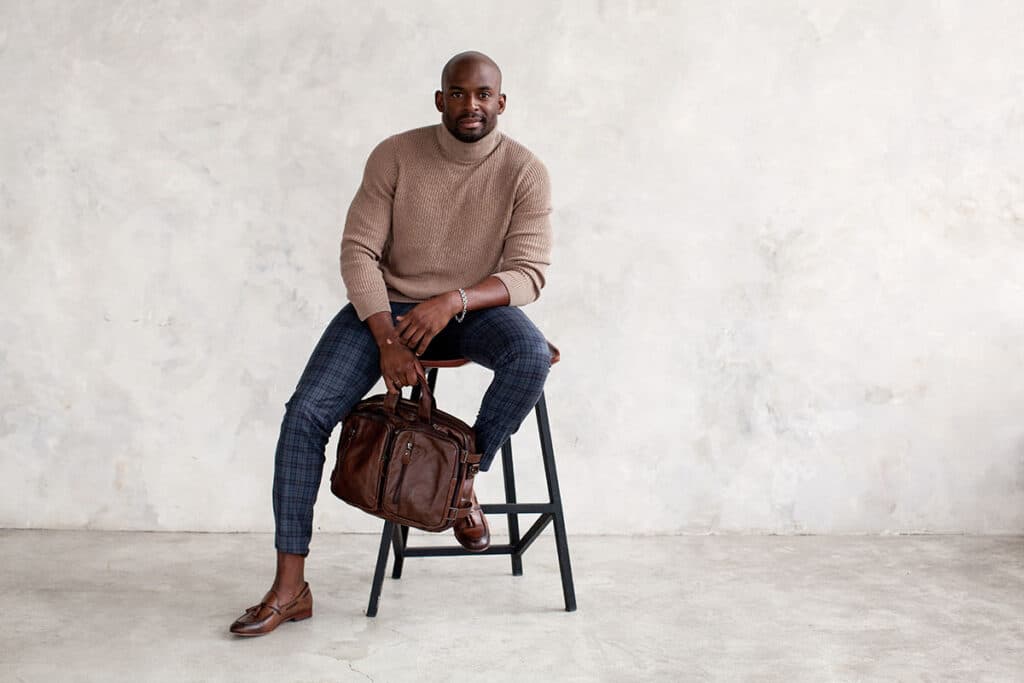What is Body Dysmorphia and How is the Fashion Industry Impacting It?
No Comments • Uncategorized • By Melissa

What is Body Dysmorphia?
Body dysmorphia, also known as body dysmorphic disorder or BDD, is a mental health condition that causes a sufferer to spend a lot of time worrying about perceived flaws in their appearance. These flaws are usually unnoticeable to others and can sometimes lead to other disorders such as anxiety disorders and eating disorders. Body dysmorphia can also cause the sufferer to believe they are bigger or smaller than they actually are, or have a warped sense of what they truly look like.
Body dysmorphia can affect anyone at any age. It doesn’t mean you’re vain or self-obsessed. It can sometimes have a really big negative impact on daily life due to feelings of inadequacy, low self-esteem and low confidence.
Symptoms of body dysmorphic disorder include worrying about a specific area of your body (such as your face), comparing yourself to others, avoiding looking in the mirror, making a lot of effort or spending a lot of money trying to conceal perceived flaws, hiding certain body parts such as the upper arms even when its really hot outside, an obsession with beauty procedures such as plastic surgery, or obsessively skin picking to make it appear smoother. BDD can get so bad that sufferers may end up developing depression and may even have suicidal thoughts.

Getting Help For Body Dysmorphia
You should see your GP if you think you might have body dysmorphia. You may require therapy such as cognitive behavioural therapy to help you develop a healthier mindset about body image. Sometimes, medicine or an antidepressant may be prescribed for more severe cases.
It’s also a good idea to talk to a trusted family member or friend as they can offer their love and support when you’re feeling low.
Your mental health and well-being are just as important as your physical health. You should feel comfortable and safe reaching out for help if you feel overwhelmed.
What Causes BDD?
The society in which we live is very obsessed with physical appearance. It’s difficult to be completely immune to this as social media and the media in general constantly shows us what traits are considered most physically attractive. Those without these traits may begin comparing themselves or feeling less worthy. These thoughts can quickly spiral into an obsession, especially when pretty privilege and bullying are taken into account.
Seeking perfectionism is unrealistic, but when we are shown “perfect” images on Instagram (that are often heavily, though realistically, edited and covered with filters) it is difficult to not want the same thing. Consider too that many attractive people become influencers or models, and receive a lot of attention and money purely for being good looking. We may begin to judge our success – in romantic relationships, our careers and in our personal lives – based on how attractive we are. It’s important to remain realistic about how much your appearance can affect your life, and try not to put too much scope on your appearances alone.

Body Dysmorphia and the Fashion Industry
The fashion industry is highly responsible for what is deemed to be in fashion right now. That doesn’t just include what we wear; it also includes what looks and aspects of our physical appearance are in style. Our size, height, proportions, hair colour, brow shape and even lip size can all be influenced by whatever the fashion industry deems to be “in” right now. That means the industry has the ability to make a big impact on the average person’s perceptions of themselves.
Today, larger lips, a small waist and a bigger exterior are all in fashion (think Kim Kardashian). But 20 years ago, the heroin-chic look was in thanks to Kate Moss; looking skinny was all the rage. How can the average person expect their looks to change so extremely?
Just take a look at today’s catwalk fashion models to understand that unobtainable, difficult-to-achieve body shapes and sizes are always considered high fashion. The fashion industry has always shown body types that are physically unobtainable for the average person. The standard height requirement for a female model is at least 5’9 with 34-24-34 body measurements. Only a very small percent of the world’s population has the ability to meet these standards.

Clothing Size Issues
Many clothing brands do not adhere to a regulated clothing size. What may be a size 12 in one shop may be a size 10 or 14 in another. Some stores only cater to specific body types; before its dramatic change, Victoria’s Secret very clearly marketed itself towards slender women with smaller breasts. Not being able to fit into clothing supplied by these types of brands can very easily trigger body dysmorphia.
The Impact of Social Media
Many people feel a sense of dissatisfaction with their bodies. We are told being too big is unattractive and “lazy”. Too small, and you must have issues with food. If your muscles are too big, you’re bulky. Too small, and you’re weak. It’s very difficult to win in a society that is increasingly judgemental and opinionated – and what’s more, able to freely share these opinions via social media.
Social media, in particular platforms like Instagram where image sharing is the primary focus, is becoming an increasing concern. Its huge impact on our day to day well-being and mental health is causing a lot of people – the young in particular – to develop unhealthy perceptions of their own looks. The constant myriad of “perfect” attractive people we see every day will inevitably cause feelings of self-doubt and worthlessness in those who do not meet these impossible (and typically edited) expectations.
We also tend to naturally seek validation in the form of likes, the number of people who watch our stories and our follower number.

How to Limit Your Chances of Developing Body Dysmorphia
Social media can be very triggering, so an effective way to try to decrease your chances of body dysmorphia and emotional distress is to be very mindful of who you follow, and to limit the amount of time you spend on social media apps. It’s a good idea to block and avoid any accounts that make you feel bad about yourself. Anyone who says negative, hateful or bullying comments directly to you should be reported and blocked as quickly as possible.
It’s also important to remember that celebrities and influencers have access to resources that the average person does not. Their job is to look good, so they have both the money and the access to work with the best nutritionists, trainers, make-up artists, manicurists and stylists in the world.
If you start to experience worsening symptoms of mental health and notice a decreased quality of life because of it, it’s always best to seek help from professionals. Your doctor is the best place to start, but there are also many online resources and support groups who can help you feel better.
Some countries including Spain and Italy have put laws in place to protect the health of their models. This means that not only will the model’s health be a priority, but consumers who view marketing materials featuring models will be shown a healthier and more realistic body type. Additionally, some fashion houses including LMVH and Kering (who own the likes of Dior and Gucci) have banned extremely slender models, saying all models can’t be smaller than a UK size 6. They must also provide a medical certificate from their doctor along with undergoing psychological analysis.
These changes can go some way towards helping prevent unrealistic beauty standards in terms of size being pedalled to the masses, but unfortunately, it’s far more difficult to prevent more stylistic fashions (such as bigger lips, fox eyes, big brows etc) from being a thing. It’s important that we try to surround ourselves with more realistic representations of beauty; spend time with friends and family, and give ourselves regular breaks from social media.
While it’s always a good thing to want to strive to be better, it’s important too that you only compete with yourself. Try not to focus on other people; they live different lives, and have different surroundings, privileges, access and income to yourself. Constantly comparing yourself to others can cause you significant distress and make you even more self-conscious. Focus on bettering yourself and try not to worry too much over any perceived defects you feel you may have.; no one is perfect.









